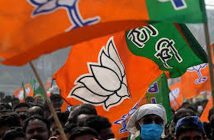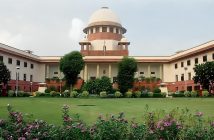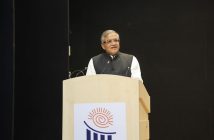At the latest NITI Aayog Governing Council meeting, southern states, including Tamil Nadu and Telangana, forcefully pressed the Centre for sweeping policy reforms, reigniting the debate over cooperative federalism. With mounting concerns over fiscal devolution and state autonomy, opposition-ruled states leveraged the high-profile platform to demand a fairer share of central resources and greater freedom in policymaking. As the Centre pushes for unity under ‘Viksit Bharat,’ the southern states’ assertive stance signals a pivotal moment in India’s evolving federal structure.
Key Details
- Who: Chief Ministers M.K. Stalin (Tamil Nadu) and A. Revanth Reddy (Telangana)
- What: Advocated for policy reforms emphasizing cooperative federalism
- When: During the 10th NITI Aayog Governing Council meeting held recently
- Where: New Delhi
- Why: To address concerns over fiscal devolution, policy autonomy, and equitable Centre-State relations
The 10th Governing Council meeting of NITI Aayog, convened on May 24, 2025, in New Delhi, became a flashpoint for the simmering tensions between the Centre and several opposition-ruled southern states. With Prime Minister Narendra Modi calling for Centre-state unity to achieve the ambitious ‘Viksit Bharat 2047’ vision, Chief Ministers from Tamil Nadu, Telangana, and Andhra Pradesh seized the opportunity to spotlight longstanding grievances over fiscal devolution and policy autonomy. Their demands, articulated against the backdrop of a rapidly changing political landscape, underscored the contested interpretations of cooperative federalism in India. As the Centre appeals for a ‘Team India’ approach, the southern states’ calls for reforms reveal the complexities—and the stakes—of Centre-state relations in the world’s largest democracy.
The NITI Aayog Meeting
The NITI Aayog’s 10th Governing Council meeting, chaired by Prime Minister Narendra Modi, was held in Delhi on May 24, 2025. The session brought together Chief Ministers and Lieutenant Governors from across the country. However, notable absentees included the Chief Ministers of Karnataka, Kerala, and Puducherry, as well as West Bengal’s Mamata Banerjee and Bihar’s Nitish Kumar.
The meeting’s central theme—’Viksit Rajya for Viksit Bharat@2047‘—aimed to align state and central efforts toward building a developed India by the centenary of independence. However, the event quickly became a platform for opposition-ruled states, especially from the south, to voice their dissatisfaction with the current federal arrangement and demand substantive policy changes.
Background: Cooperative Federalism in India
The Principle and Its Evolution
Cooperative federalism, as envisioned in the Indian Constitution, is rooted in the idea that the Centre and states are partners in the nation’s development. The NITI Aayog, which replaced the Planning Commission in 2015, was established to foster this spirit by providing a platform for dialogue, policy coordination, and joint planning between the Centre and states. Its mandate is to ensure that states are equal stakeholders in shaping national priorities and strategies, moving away from a top-down approach to development.
Tensions Beneath the Surface
Despite its promise, the practice of cooperative federalism has often been fraught with tension. The central government retains significant fiscal and legislative powers, and states have frequently complained about inadequate financial devolution, delayed fund releases, and central overreach in state matters. These issues have become particularly acute in recent years as opposition-ruled states perceive a growing imbalance in Centre-state relations.
Southern States’ Demands: Fiscal Devolution and Policy Autonomy
Tamil Nadu: The Push for a Fair Share
Tamil Nadu Chief Minister M.K. Stalin emerged as a leading voice at the meeting, highlighting the state’s developmental achievements and its ambitious target of becoming a one-trillion-dollar economy by 2030. Stalin’s central contention was the growing strain in Centre-state financial relations, particularly the shortfall in the devolution of central taxes.
“We are marching ahead with long-term plans. I assure you that Tamil Nadu will make a significant contribution to India’s vision of a USD 30 trillion economy. To realize that vision, cooperative federalism must be the strong foundation. I strongly urge that the Union Government must extend cooperation without bias to all states, including Tamil Nadu, to help them achieve their development goals,” Stalin asserted.
Stalin specifically demanded that states receive a “rightful” 50 percent share in central taxes, pointing out that Tamil Nadu currently receives only 33.16 percent against the promised 41 percent. He also raised the issue of nearly ₹2,200 crore in Union funds being denied to Tamil Nadu for the 2024–2025 fiscal year, which he said directly impacts critical sectors, such as education.
Telangana: Autonomy and Resource Allocation
Telangana Chief Minister Revanth Reddy echoed similar concerns, emphasizing the need for the Centre to respect state autonomy and ensure equitable allocation of resources. Reddy argued that true cooperative federalism requires the Centre to act as an enabler, not a controller, of state-led development initiatives.
Andhra Pradesh: Sub-Groups for Growth
Andhra Pradesh Chief Minister N. Chandrababu Naidu, whose TDP is aligned with the BJP at the Centre, proposed the formation of three sub-groups focused on GDP growth, population management, and leveraging artificial intelligence. Naidu’s suggestions were framed as collaborative efforts to fast-track the ‘Viksit Bharat 2047’ vision. Still, they also emphasized the need for more structured and inclusive decision-making processes that involve all stakeholders, including the states.
The Centre’s Response: Calls for Unity Amid Dissent
Prime Minister Modi, in his address, reiterated the importance of Centre-state cooperation, urging all stakeholders to work together as “Team India” to achieve national goals. He emphasized that no objective is beyond reach if the Centre and states act in concert, and he called for a collective effort to realize the ‘Viksit Bharat’ vision.
However, the Centre’s response to the specific demands raised by the southern states was measured. While Modi stressed the need for unity and partnership, there was no immediate commitment to revising the formula for fiscal devolution or granting greater policy autonomy to the states. This cautious approach reflects the Centre’s reluctance to cede fiscal or legislative ground, even as it publicly champions the rhetoric of cooperative federalism.
Stakeholder Perspectives: Voices from the States
Tamil Nadu’s Stand
Stalin’s speech was notable for its directness. He criticized the practice of releasing funds only after protracted legal battles, arguing that such delays undermine both state and national development.
“It is not ideal for the cooperative federal structure that states should be given funds after a legal battle. This will affect the development of the state and nation, as well,” Stalin said.
Telangana’s Position
Revanth Reddy, representing another opposition-ruled southern state, called for more meaningful consultations between the Centre and states, particularly on issues such as GST compensation, centrally sponsored schemes, and the allocation of resources for infrastructure and social welfare.
Andhra Pradesh’s Approach
Naidu’s proposals for sub-groups signaled a willingness to engage constructively with the Centre but also reflected the desire for a more nuanced and collaborative approach to policymaking that takes into account the diverse needs of different states.
Absenteeism: A Silent Protest?
The absence of the Chief Ministers of Karnataka, Kerala, and Puducherry—along with those of West Bengal and Bihar—was interpreted by many as a silent protest against what they perceived as the Centre’s high-handedness. While some cited prior engagements, the coordinated absence of several opposition-ruled states sent a clear signal about the growing discontent with the current federal arrangement.
Cooperative Federalism: Contested Terrain
The Constitutional Framework
India’s federal structure, as outlined in the Constitution, is designed to balance the powers of the Centre and the states. The Seventh Schedule divides responsibilities between the Union and the states, but the Centre retains significant control over finances and legislation. The NITI Aayog was meant to serve as a platform for dialogue and consensus-building, replacing the more centralized Planning Commission.
Reality vs. Rhetoric
In practice, however, states have often found themselves at the receiving end of delayed fund releases, shifting policy priorities, and what they describe as arbitrary interventions by the Centre. The southern states, with their robust economies and assertive political leadership, have been particularly vocal in demanding a more equitable and collaborative federal arrangement.
The GST Conundrum
The introduction of the Goods and Services Tax (GST) was hailed as a milestone in cooperative federalism, creating a unified tax regime across the country. However, states have frequently complained about delays in GST compensation and the erosion of their fiscal autonomy.
Broader Implications: The Future of Centre-State Relations
A Test for Indian Federalism
The assertive stance taken by the southern states at the NITI Aayog meeting signals a pivotal moment in India’s federal journey. Their demands for greater fiscal devolution and policy autonomy are not just about money—they are about the very nature of Indian federalism and the balance of power between the Centre and the states.
Potential for Reform
If the Centre responds positively to these demands, it could pave the way for a more robust and dynamic federal structure, where states are empowered to innovate and drive development in line with their unique needs. Conversely, a continued reluctance to accommodate state concerns could exacerbate tensions and undermine the spirit of cooperative federalism.
Political Dynamics
The broader political context also shapes the debate over cooperative federalism. With several opposition-ruled states pushing for reforms, the issue has become a flashpoint in Centre-state relations, with implications for national unity, governance, and the future of Indian democracy.
Conclusion
The NITI Aayog’s 10th Governing Council meeting has reignited the debate over cooperative federalism in India, with southern states like Tamil Nadu and Telangana leading the charge for policy reforms. Their demands for greater fiscal devolution and policy autonomy reflect deep-seated concerns about the current federal arrangement and the need for a more equitable partnership between the Centre and the states. As India marches toward its centenary as an independent nation, the evolving dynamics of Centre-state relations will play a crucial role in shaping the country’s future. Whether the Centre chooses to embrace the spirit of cooperative federalism or maintain the status quo will determine not just the pace of development but the very fabric of Indian democracy.
Stay tuned for in-depth analysis and expert commentary on the future of Centre-state relations in India.




